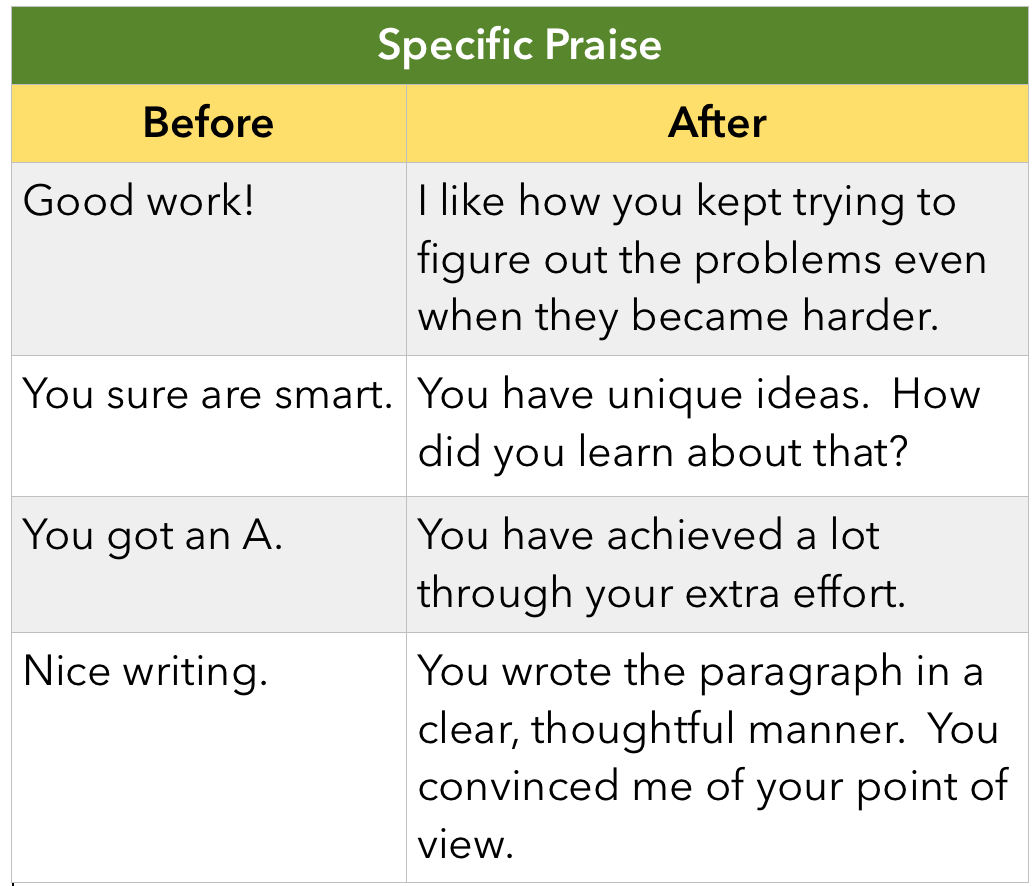 Although praise can be a useful way to motivate students to do their best, teachers who use specific praise find that it is much more effective. At its best, specific praise offers sincere and constructive feedback about what a student has accomplished.
Although praise can be a useful way to motivate students to do their best, teachers who use specific praise find that it is much more effective. At its best, specific praise offers sincere and constructive feedback about what a student has accomplished.
Specific praise differs from general praise in that its focus is on students’ actions rather than on the students themselves.
Compare these examples:
- General Praise: “You did a great job on this!”
- Specific Praise: “Your Venn diagram is balanced and complete!”
- General Praise: “Good answer”
- Specific Praise: “I tell you understand the steps to solve this problem.”
- General Praise: “You are behaving well.”
- Specific Praise: “Thanks for following classroom rules by staying in your seat and sitting quietly.”
Specific Praise creates a risk-free environment in which students learn to control their own success and become lifelong learners.
